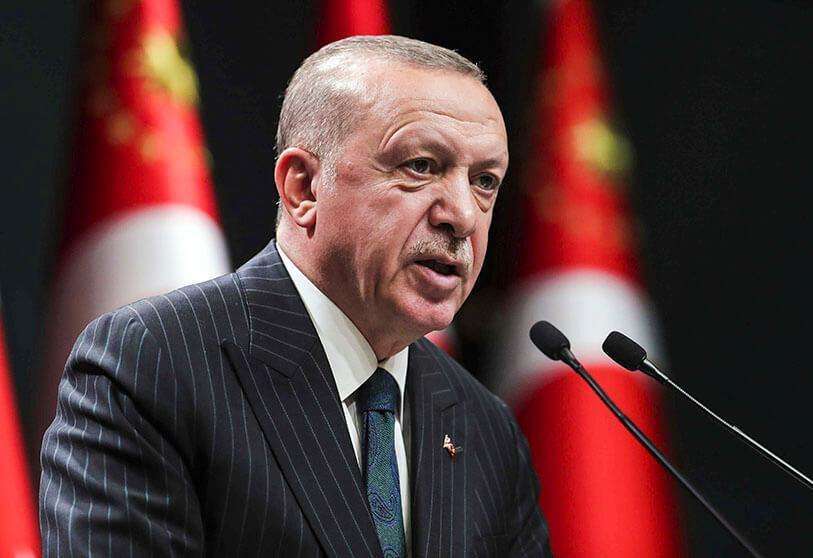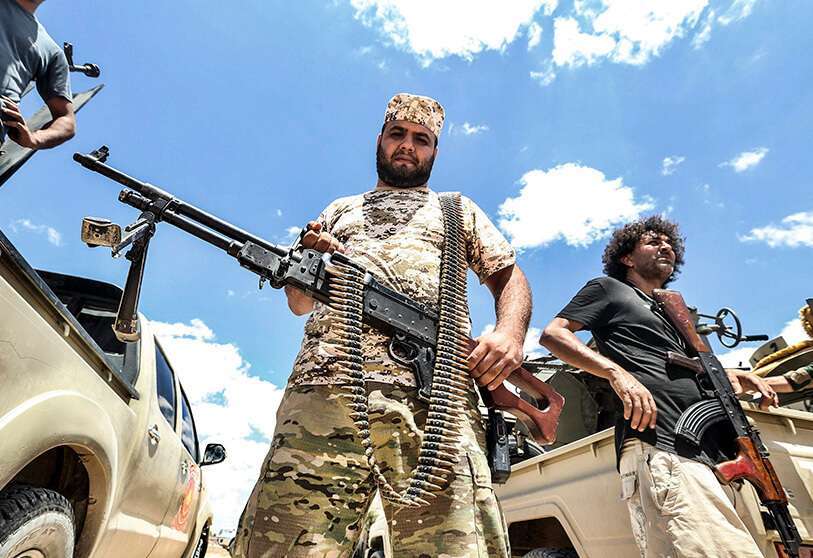Turkey hinders transition in Libya by sending a new batch of mercenaries

Turkey seems unwilling to withdraw its troops from Libya. Ankara ignores the continuous demands made by the Government of National Unity (GNU), the United Nations and the other signatories of the political transition agreement in the North African country. Erdogan is reluctant to abandon his position and continues to obstruct Libya's peaceful development by maintaining mercenaries in key enclaves in the country.
An Airbus 400 TUAF221 military cargo plane with registration number 18-0093 from Turkey entered Libyan airspace earlier this week. The aircraft flew from the Kayseri base to Ankara airport before taking off for the Turkish-controlled Al-Watiya airbase in western Libya. The vehicle contained a new batch of mercenaries, weapons and ammunition.
Turkey controls multiple air, naval and land bases in the western part of the North African country. The most important stronghold is Al-Watiya, the settlement that received the latest shipment from Ankara. Up to a total of 18,000 mercenaries of Syrian origin - some 10,750 were returned after their contracts expired - have held the area. Alongside them have been another 2,500 from Tunisia, 496 of whom were killed, according to the Syrian Observatory for Human Rights (SOHR).

The mercenaries Turkey sends to Libya are mostly pro-Turkish fighters in Syria. They are recruited by Ottoman intelligence services in precarious situations and sent to Libyan soil to defend Ottoman interests there. Of the latest batch, the SOHR reported that around 9,000 mercenaries, including 350 underage children returned to Syria after the expiry of their contracts and salaries. Fighters' salaries are around $500 per month.
However, the return of Syrian mercenaries from Libya has been banned since 28 April, both for mercenary groups recruited by Turkish intelligence and the Russian company Wagner. Only a small group of mercenaries have been able to return to Syria through bribes and forged documents, as discontent among the Ankara-backed mercenaries has grown. Many of them intend to enter Europe and leave their life in Syria behind for good.
International agencies put the presence of foreign forces in the country at 17,000 fighters. Of that portion, some 14,500 are part of the Turkish-sponsored Syrian mercenary contingent. Recent resolutions of the UN Security Council and the so-called Libya Quartet have called for the withdrawal of "all mercenaries and foreign troops".

The dispatch goes against UN requests and statements by members of Libya's transitional government. Foreign Minister Najla Mangoush called on Monday for "the withdrawal of all foreign forces", adding that they are working "to restore our sovereignty and prepare for free and fair elections, without the pressure of arms and force".
The statements by Libya's interim foreign policy chief came under heavy criticism throughout the week. The opposition alleged that her calls for the withdrawal of foreign forces were expressly directed at Turkish troops, while she has not spoken out about the presence of Russian mercenaries from the Wagner group, linked to former Colonel Haftar.
The appointment of the new head of the intelligence service, Husein al-Aib, together with the minister's words, sharpened the criticism and finally triggered the offensive against one of the presidential headquarters, located in the Corinthia Hotel in Tripoli. The Libyan Audit Office called for a reversal of the election after hearing the news, claiming that Hussein al-Aib is involved in corruption. The assailants also called for the return of his predecessor, Imad al-Tarablusi, to office.

Mevlüt Çavuşoğlu, the Turkish foreign minister, remarked last week during his visit to Tripoli that Turkey's presence in Libya is not comparable to that of other "illegitimate forces", referring to Russian mercenaries. Erdogan's foreign policy representative defends the authority of the Ottoman state to stay in Libya, as it was an express request of the GNA as enshrined in the memoranda of understanding.
Ankara and the internationally recognised, Tripoli-based Government of National Accord (GNA), led by Fayez al-Sarraj, reached two extensive agreements in 2019. The first sealed their military cooperation, while the second delimited the maritime borders of the two states. This last point is significant. If Libya remains divided and the eastern provinces fall under the influence of a combination of Wagner's and Haftar's forces, the maritime corridor would shift to the east and undermine Turkey's ability to assert itself in the eastern Mediterranean energy dispute.
Çavuşoğlu himself set out his government's vision last week on a visit to Berlin: "There are many foreign fighters and mercenaries in Libya. We agree that they should leave. However, it does not serve Libya's interests to stop providing much-needed support, such as military training and advice, which is provided on the basis of a treaty between two sovereign nations. It would be wrong for third parties to interfere in these bilateral agreements.
The Joint Military Commission, in cooperation with UNSMIL, has so far been unable to establish an effective mechanism to remove foreign troops or to monitor compliance with the ceasefire. For this reason, the UN Security Council approved in April the dispatch of 60 international observers to monitor full compliance with the transitional agreement.








